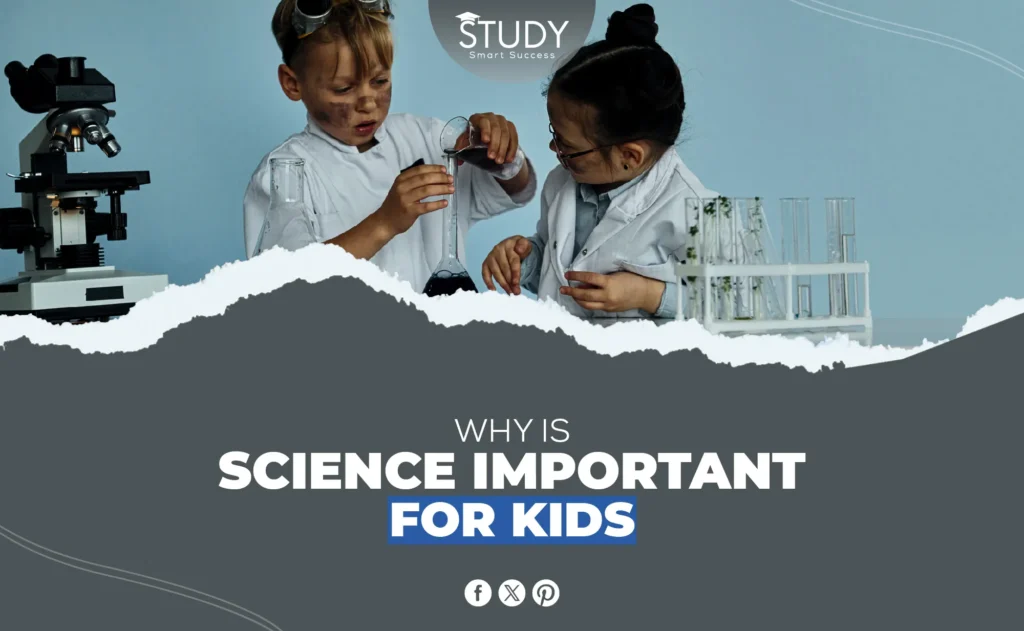Introduction
Early education is crucial to a child’s academic, social, and general development. Science is unique in supporting intellectual growth in youngsters. Why is science important for kids? It teaches youngsters to think critically, ask questions, and wonder about the world. Science is about understanding processes, interpreting evidence, and drawing real-world conclusions.
Parents and educators must prioritize science education from an early age. Teaching youngsters science and problem-solving is crucial in a world driven by technology and innovation. Childhood scientific exposure prepares children to flourish, adapt, and contribute to society.
Read more about the Curriculum Development Job.
Critical Thinking and Problem-Solving Skills
Science is one of the few subjects that actively encourages critical thinking. The scientific method—observing, hypothesizing, experimenting, and concluding—is taught to youngsters early on. These techniques improve their thinking and problem-solving skills. Children learn to break down complex problems into manageable steps and evaluate solutions using evidence rather than guessing.
When a child does something as easy as mixing baking soda and vinegar, they use an inquiry process. Based on what they see, they guess what will happen and come to a decision. This technique can solve many problems in the real world, like how to make a sandcastle stronger or why a plant isn’t doing well.
Learning these problem-solving skills early on can help kids deal with more significant problems in school and life as they age. Not just in STEM fields but in any job where you have to make tough decisions, you need to be able to think critically and analytically.
Encouraging Curiosity and Exploration
Science feeds into children’s natural curiosity to explore and understand the world. It teaches kids to ask “why” and “how” inquiries and find answers. Science lets kids explore their curiosity through experiments, observations, and evidence-based conclusions.
Simple science experiments, like growing crystals or making a volcano at home, let kids see the effects of their questions for themselves. These tasks are fun and teach important things about how things work, what forces are at work, and what effects they have. More importantly, they teach kids to think like scientists and use their natural desire to learn.
Science education keeps kids interested and motivated to learn by pushing them to explore. This gives them the power to direct their learning, leading to a more active and curious approach to schooling that can be used in other topics and parts of life.
Building a Foundation for Future Careers
The world is changing quickly, and science and technology are becoming increasingly important in almost every field. By getting kids interested in science at a young age, we help them prepare for careers in STEM fields, which are in high demand and offer significant growth and advancement possibilities.
According to data from several labor market studies, STEM jobs, such as those in engineering, medicine, and technology, are expected to grow significantly in the next few years. Artificial intelligence, genetics, and environmental science are all increasing fields. People with a strong science background will have an advantage in these fields.
Getting kids interested in science early on helps them see everything they can do in this field. It might motivate them to become engineers, doctors, researchers, or scientists, all of which are handy jobs that help society move forward. Students learn skills like critical thought, problem-solving, and working together that are useful in these and many other jobs.
Developing Communication and Collaboration Skills
Scientists work together, not alone. Many scientific advances are made when people work together and talk to each other. Group science projects, a normal part of science classes, allow children to work together, share their ideas, and discuss their results clearly and organized.
These crafts teach kids to listen and express themselves. In a collaborative project to build a model bridge, students brainstorm ideas, discuss their approach, divide tasks, and work together. This technique improves their scientific understanding and teamwork.
Explaining your thoughts and working with others easily is a valuable skill that is more than just helpful in science class. Kids will use these communication and teamwork skills all their lives, whether working toward a job or just doing things for fun.
Fostering Environmental Awareness
Environmental sustainability is one of the world’s most critical problems. Teaching kids science, especially about ecosystems, climate change, and green energy, can make them more aware of ecological problems and motivate them to take action.
As a child, you can help the world by teaching them how to recycle, save energy, and keep natural areas safe. This will make them more responsible adults. This information gives them the power to choose how to connect with the world. It makes them want to think about what they can do to help solve environmental problems.
For instance, teaching kids how pollution hurts marine life can inspire them to make greener choices, like using less plastic or helping clean up their neighborhoods. Science education not only tells them about the problems on Earth but also gives them the skills and information to help fix them.
Boosting Confidence Through Hands-On Learning
Children can often learn science through hands-on activities like projects and seeing the results of their work. These experiences help kids feel more confident when their projects work. They also feel better about themselves when they can describe something scientific they’ve learned.
Kids must test their ideas and see what happens in the real world. They must build a rocket, do an easy chemistry experiment, or watch plants grow. Because of these wins, they feel more confident and sure that they can solve problems and reach their goals.
Science teaches kids that failure is not the end but a chance to learn and improve, even when studies don’t go as planned. You need a growth attitude to become resilient and love learning for a lifetime.
Conclusion
You should teach kids science for more than just school requirements; it’s an investment in their future. Science education gives kids the tools to face the world with confidence and skill by teaching them how to think critically, spark their curiosity, build a foundation for future jobs, and improve their communication skills.
Hands-on learning also makes them feel better about their self-worth and gives them a sense of responsibility toward the world. In a world that changes quickly, teaching science is essential for providing the next generation with the skills they need to do well and make a difference.
Science education can give kids much power and set them on a better, more creative future. Parents and teachers should support it. Now is the time to get kids excited about science through fun games, thoughtful lessons, and real-life applications.


